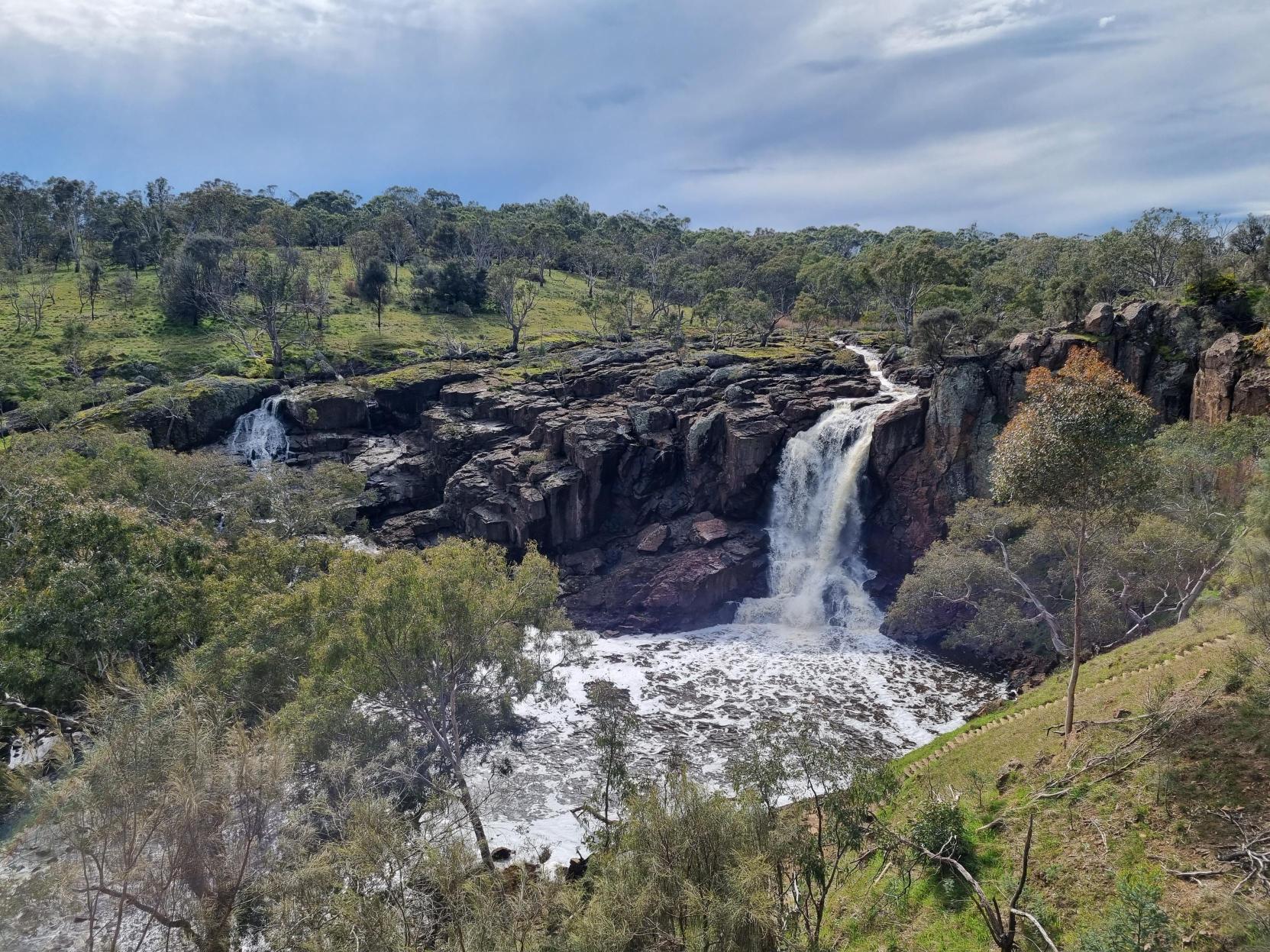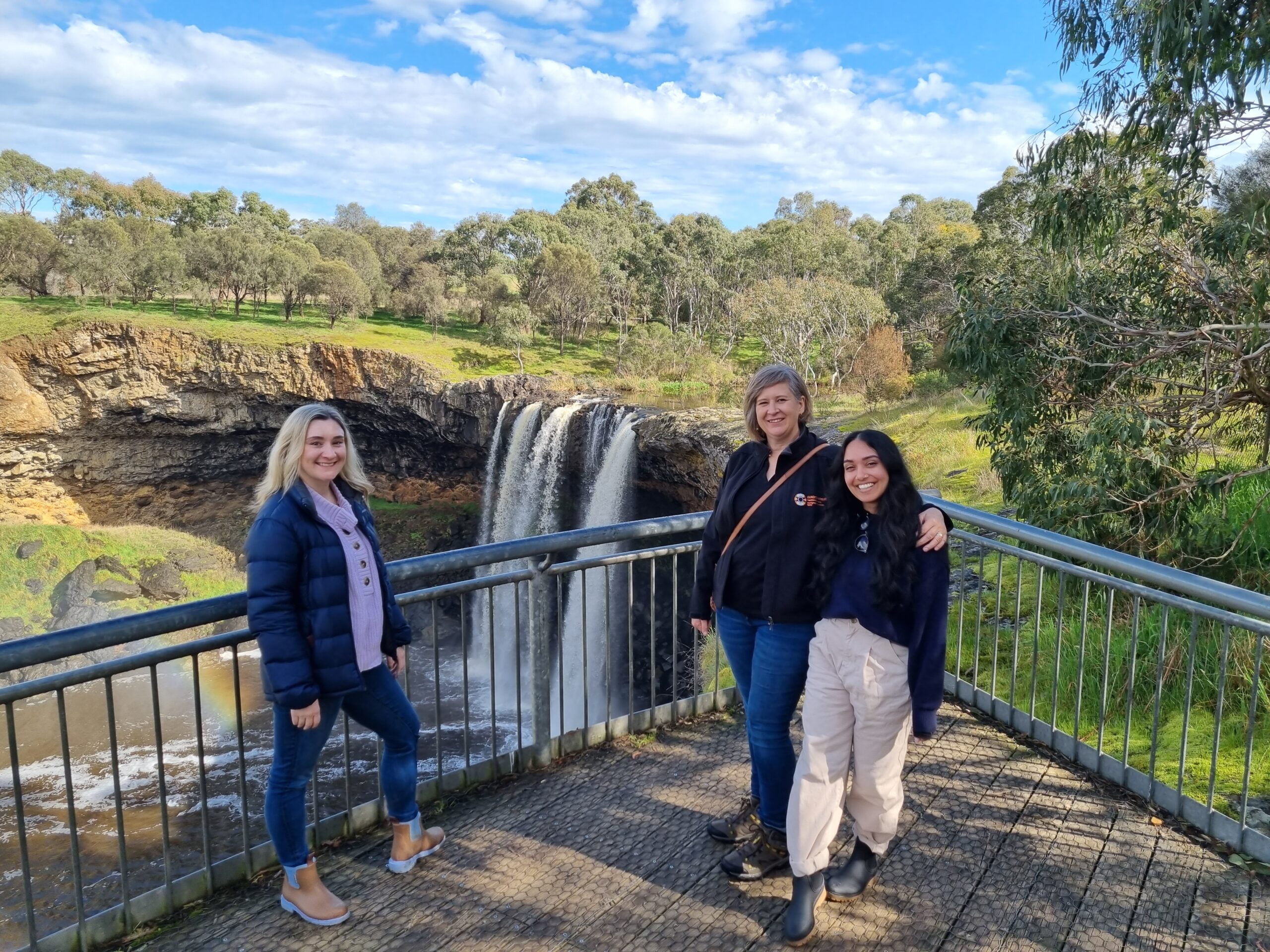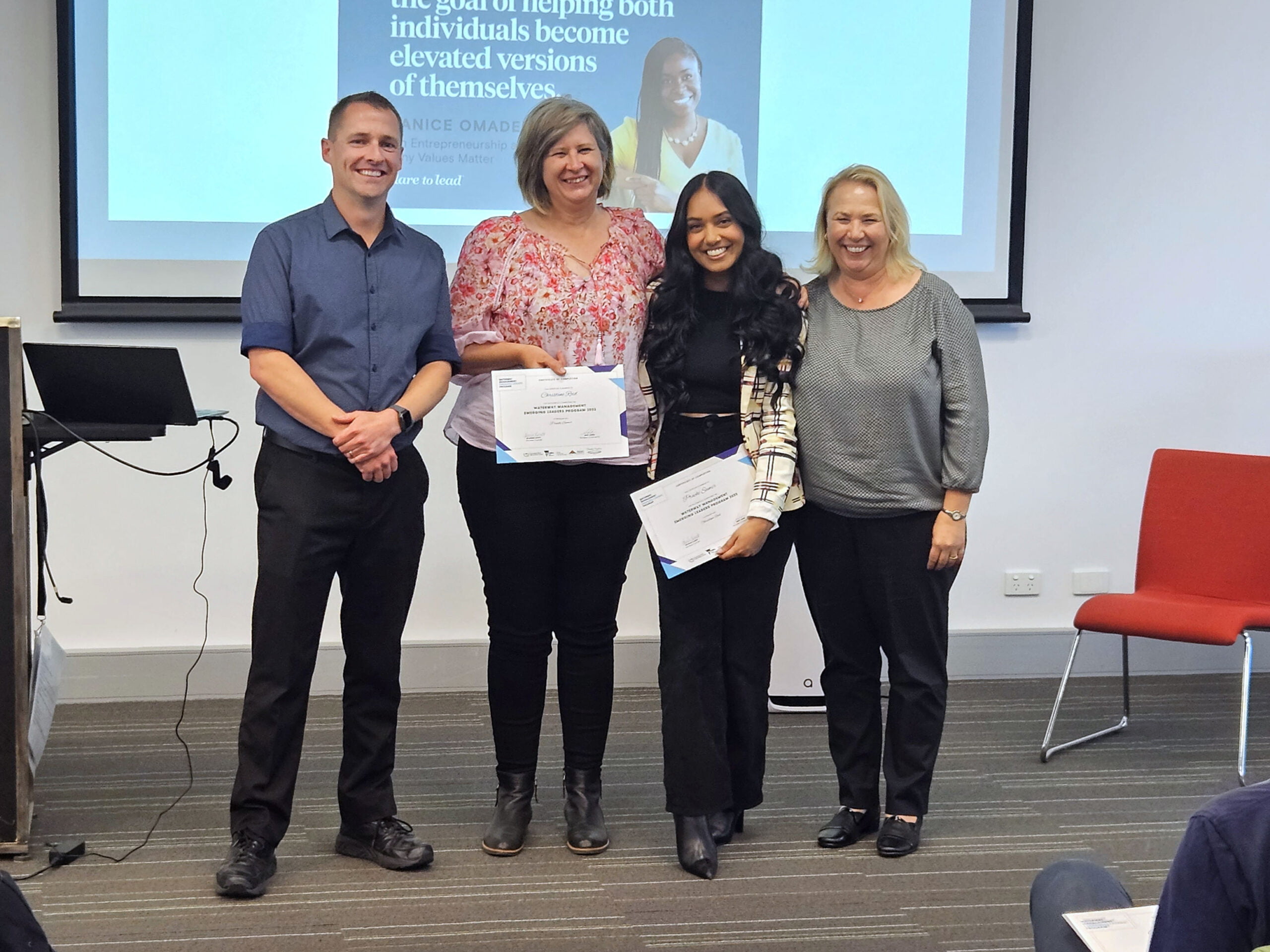Author and Mentor: Christine Reid – Glenelg Hopkins CMA/Gunditjmirring
Mentee: Prachi Samir – Department of Energy, Environment and Climate Action
The pairing of mentors and mentees is a magical and serendipitous occurrence! Witnessing the connections and the joy of these growing relationships has been wonderful. And yet, every year of the Emerging Leaders (formerly ‘Twinning’) Program, this magic has occurred.
When Prachi and I were first paired together, we already had an enthusiasm for the mentoring partnership, but more importantly we had enthusiasm for allowing a relationship to develop, and we let the magic happen!
Why?
Prachi and I are both from immigrant parents. In fact, Prachi is a migrant herself, coming from Bangladesh when she was 2 years old. My father was from Hungary, a displaced person of WWII. We understand the importance of connection to place based on our own family stories. Australia, with its unique flora and fauna and landscape can be disparate, but there it is alluring and mysterious too.
When you are a migrant, learning how to function in this new landscape takes an immense amount of energy. There is a lot to get across – from food, to dealing with the money, finding a home, how to get around, the language and so much more. Yet, you still miss your homeland, your own culture, your own landscapes, your own language.
Connection is a fundamental need of humans. And this doesn’t just mean between each other as individuals, or as communities. It means to the place where we are. And society is becoming far better at understanding this need to connect to land and each other. Watch any Gardening Australia program, and every week there is a community story about inner-city dwellers, migrants of diverse nationalities, of all abilities and of all-socio-economic backgrounds all nurturing, sharing and learning together, with nature binding that connection to each other but also to the earth.

When we think of many Landcare and conservation groups in Victoria, Prachi and I feel that there is probably a lesser membership of migrant Australians. This is not because there is an exclusivity about those groups, it is probably a result of how they have developed in farming communities and with the political climes of the early conservation movement from the 1970s. Things are certainly shifting in this space, with greater awareness of climate change and people’s wellness being more recognised to the attachment to country. Like we discussed, the community gardens movement seems to have greater membership of migrants. It is all very interesting to think about.
Yet this country has an older belonging by Indigenous Australians. What are the opportunities for Indigenous people to help connect migrants to this place? Given that there is a greater awakening and desire by wider Australian society to know more about Indigenous culture and country and connection, it is a simple answer to say Yes! But Aboriginal people, their communities and their corporations are being pulled in a multitude of ways — within the community development and justice space, and now more so in ecocultural and land management and tourism spaces. After many years of not being included, how challenging and what a quandary it must be for them!

How and What?
Prachi has worked with culturally and linguistically diverse (CALD) communities in Melbourne’s west and continues to work with Traditional Owners across the Birrarung, Waterways of the West and Rivers of the Barwon (Barre Warre Yulluk) regions. She is passionate about supporting CALD communities to feel connected to their local waterways and through her work program, developed a Waterways of the West CALD community engagement Toolkit for community engagement practitioners to better engage with multicultural communities in the west. The Toolkit was co-designed with several government agencies and partners, including Wadawurrung Traditional Owners, who penned a chapter on how agencies can improve education and awareness opportunities for CALD communities who are interested in understanding First Peoples connections to Country.
I have worked with Aboriginals in central Australia and in the southwest of Victoria, across cultural and ecological aspects of working on country, and have seen how engagement, decision-making and relationships is in very different places across the country, as well as within and across agencies and people.
There is no way that the project that Prachi and Christine undertook would solve any of these broader quandaries. But the mentoring relationship allowed for some great exploring of ideas that will help in their work bringing country and communities from all walks of life, together.

Final poem – Emerging Leaders Graduation
Author: Prachi
There’s something so grounding,
When you take a break from the office chair,
And spend many hours exploring,
The precious waterways for which we care.
From the Birrarung to the great Parwan,
The Mirrangbamurn to Wirribi Yalluk,
Wetlands, creeks, and the ecosystems they sustain,
And the beautiful estuaries that flow into marine bays.
There is a much older belonging by Aboriginal people
To the veins of this country, the life source.
All-binding and powerful connections,
Where country heals, country nurtures and provides.
I spent some time in Victoria’s South West,
A huge thank you to my mentor Christine,
Who shared with me an opportunity,
To explore waterways I have interacted with the least.
We started our trip at spectacular Budj Bim
And marvelled at ancient volcanic landscapes.
Gunditjmara proud of their country and connection,
World renowned for their oldest aquacultural practices.
We then spent time with passionate CMA staff,
Seeing works and projects on-ground.
Connecting communities with waterways and waterways with communities,
Kayak launches, Platycam, fishways, restoration all around!
However not everyone has these same opportunities,
And connecting to a new place can be daunting when you’ve come from far away.
You may be balancing multiple competing priorities,
And doing your best to make this new home a place to stay.
I think about my own journey,
my initial disconnectedness from this land,
I did not quite see the links between health, belonging and connecting to place,
It took me some time to properly understand.
I think about how my worldview shifted quite organically,
as I began working with passionate, environmentally minded people,
alongside Traditional Owners from across Victoria,
Who share with us the criticality of working together, holistically, to look after Country.
Let’s be renewed by the wisdom of Indigenous people,
That we belong to country; we don’t ever own it.
That country needs us, just as much as we need country.
For health, for resilience and to sustain us all.
Bringing this mentoring experience back to Simon’s Golden Circle,
The why, the how and the what,
I would love to see the stories of our beautiful waterways,
Shared with all communities to connect to when they are out and about.
So a friendly call to action,
To all leaders, emerging and strengthening,
Let’s continue to grow these relationships,
For as one person we are good, but as community we are greater!
Apply Now for 2024!
Applications are now open for The Waterway Management Emerging Leaders Program in 2024. The Program is a structured mentoring program focusing on improving the on-ground delivery of current Victorian riparian restoration projects. This Program provides an opportunity for the most effective approaches to be shared and adopted between all those working in waterway management across the State.